Centre for Educational Research and Innovation
CERI is dedicated to conducting high-quality research with a primary focus on education and training in Cambodia and the region to generate knowledge from qualitative and quantitative analyses rooted in data and evidence. Utilising the knowledge we generate, the centre actively facilitates policy discussions between both national and international researchers, policymakers, and practitioners through a series of workshops and policy dialogues held at both national and regional levels. In pursuit of our objectives, CERI maintain close collaborations with government agencies, educational and training institutions, civil society organizations (CSOs), and other pertinent stakeholders. This collective effort is to foster innovation and implement effective solutions in education and training. CERI's core activities revolve around research, capacity development, and policy engagement. Currently, our key areas of focus for research encompass educational technology, skills development, the advancement of quality education, and the promotion of inclusive education, spanning from K12 to higher education.
There is no data list!
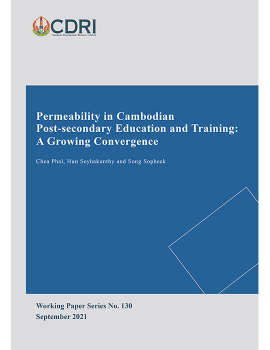
Permeability in Cambodian Post-secondary Education and Training: A Growing Convergence
This study explores the permeability between Cambodia’s post-secondary technical and vocational education and training (TVET) and academic higher education systems. Permeability refers to the ability of learners to transfer across educational tracks and qualification levels, promoting lifelong learning and social inclusion. Drawing on interviews with key informants from 15 institutions and policy...
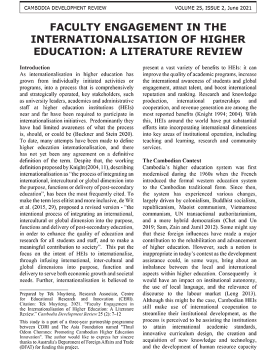
Faculty Engagement in the Internationalisation of Higher Education: A Literature Review
This review paper aims to examine the characteristics of faculty engagement in the internationalisation of higher education and the factors influencing the participation of faculty members in such a process. The review finds that faculty members have so far engaged in international activities in the form of international teaching and research, joint research publications and reviews, membership of...
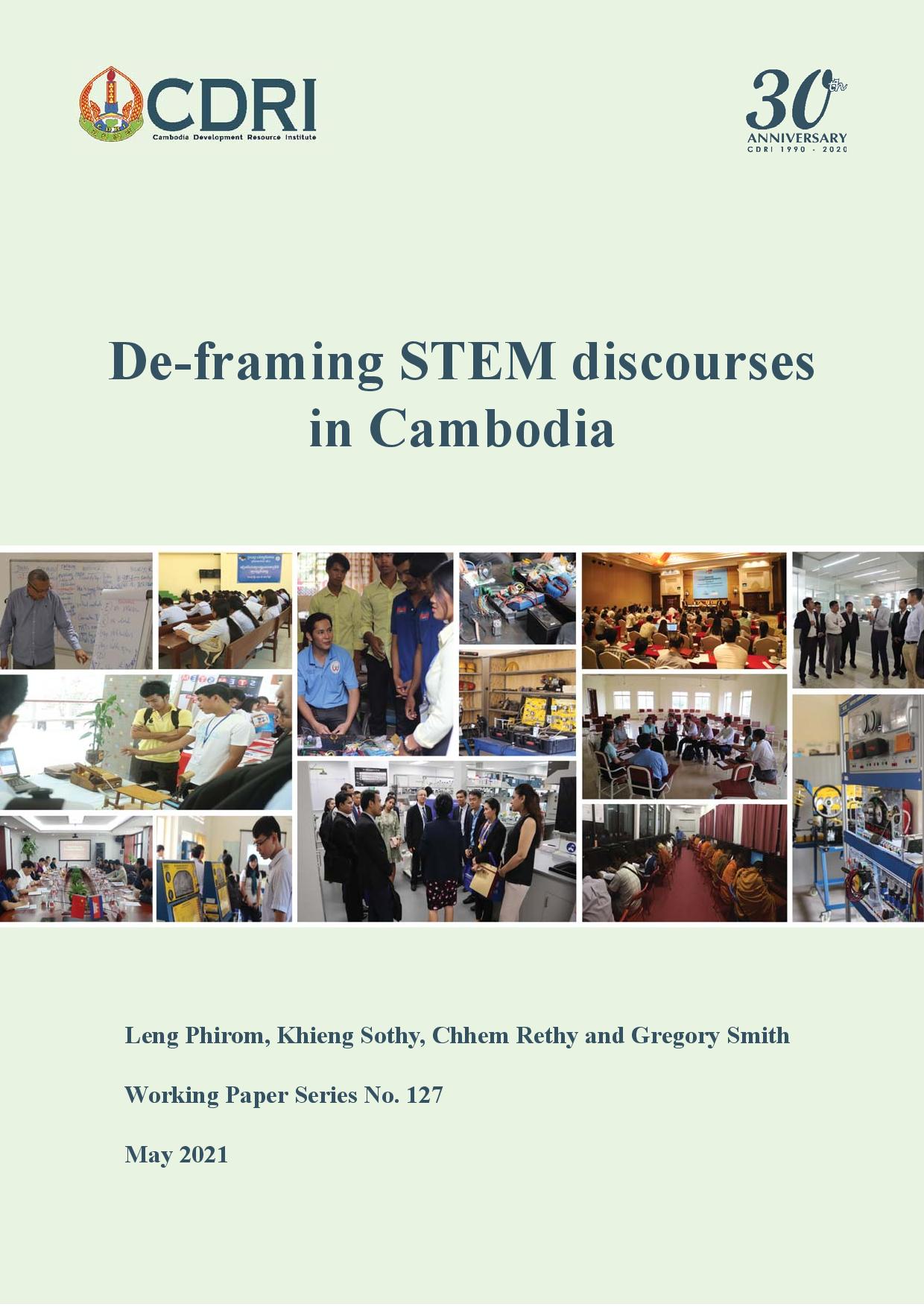
De-framing STEM Discourses in Cambodia
This qualitative study examines the development of STEM programs in Cambodian higher education, using as its theoretical framework Chesky and Wolfmeyer’s (2015) concept of an integrative STEM education, which highlights the intersections between purpose, pedagogy and content. The teaching of STEM in Cambodia remains discipline-based, dominated by teacher-centred approaches and lacking real-world e...
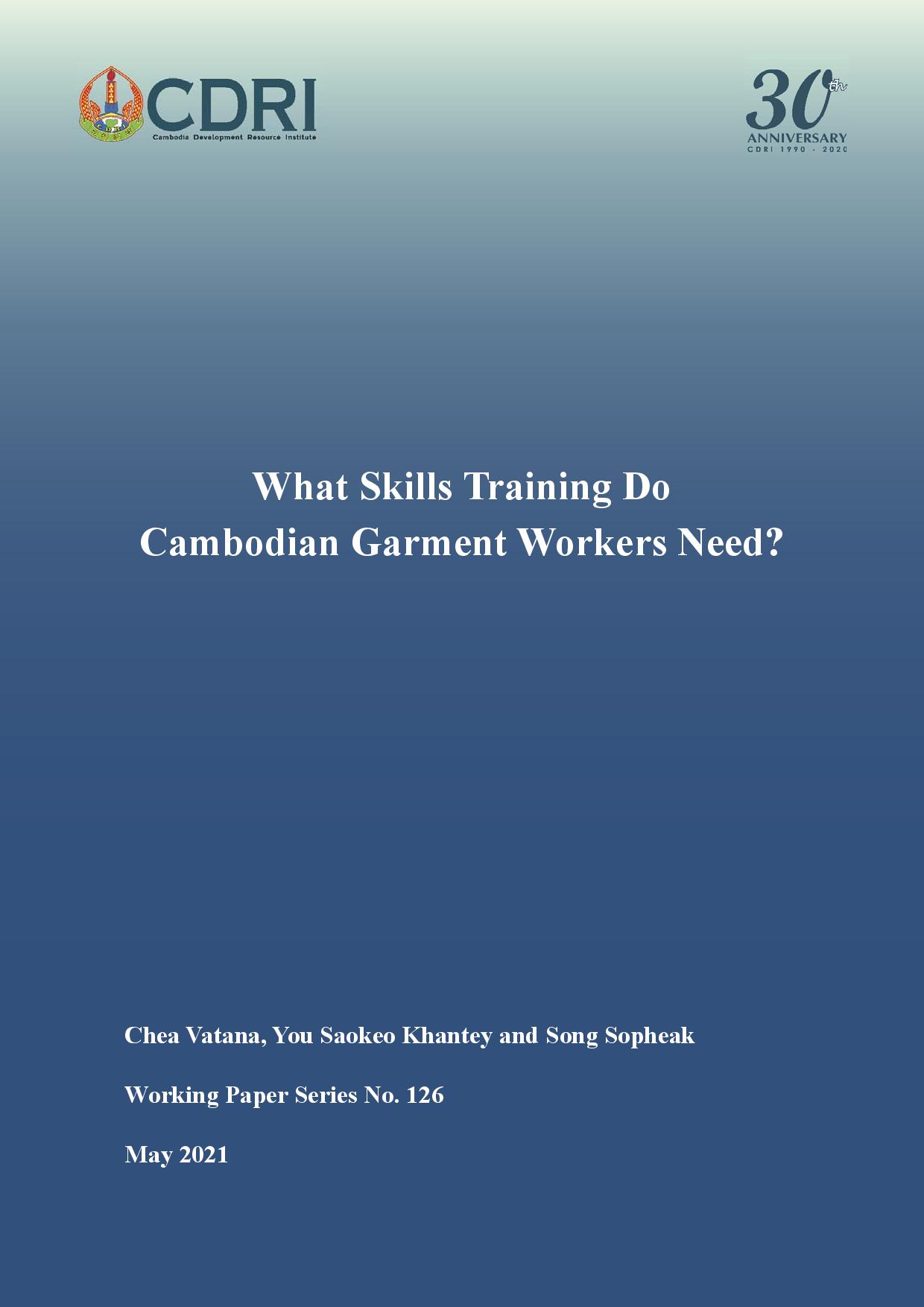
What Skills Training Do Cambodian Garment Workers Need?
This study aimed to identify the current skills of Cambodian garment workers, whether or not they wanted to gain new skills and, if so, what those were. The results revealed that the greatest percentage – 60 – had acquired sewing skills, followed by quality control and packaging skills. More than two-thirds were also able to read, write and calculate, and could use the internet and social networks...
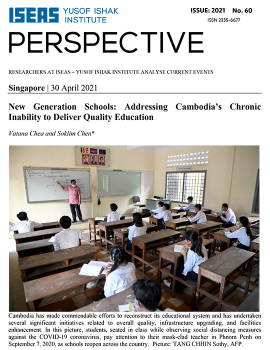
New Generation Schools: Addressing Cambodia’s Chronic Inability to Deliver Quality Education
In recent years, the Cambodian government has introduced a reform agenda to enhance the quality of teaching and learning, improve the bureaucratic administration of education, and address other major challenges affecting public schools. The new agenda has led to several remarkable transformations in Cambodia’s educational system, including the introduction of a new innovative school model called N...
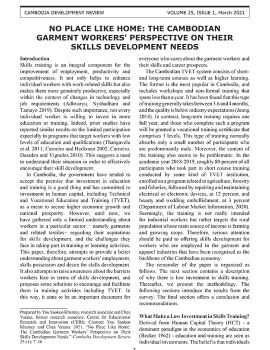
No Place Like Home: The Cambodian Garment Workers’ Perspective on Their Skills Development Needs
Developing skills for current workforce is indispensable in today’s economy. In an attempt to promote investment in skill training for workers in a Cambodian backbone sector, namely garment and textile, this study explores and identifies the problem of underinvestment in their skill training. A total of 787 individual workers are randomly selected using two stages of sampling procedure. The study...
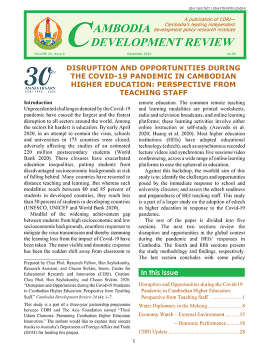
Disruption and Opportunities During the Covid-19 Pandemic in Cambodian Higher Education: Perspective from Teaching Staff
The twofold aim of this study is to: identify the challenges and opportunities posed by the immediate response to school and university closures; and assess the edtech readiness and preparedness of HEI teaching staff. The findings demonstrate that unstable internet connection and difficulty assessing student performance are the biggest obstacles impeding the effective delivery of distance learning...
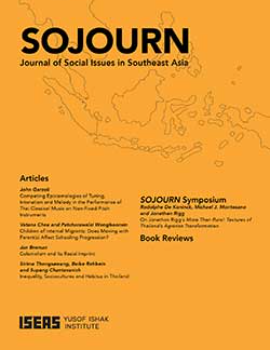
Children of Internal Migrants: Does Moving with Parent(s) Affect Schooling Progression?
Using the 2011 Cambodia Rural-Urban Migration Project, we re-examine the effect of parental migration on the long-term educational progress of children who have accompanied their parents to urban areas by comparing such children with those left behind in rural areas. We use a measurement that captures schooling disruption effect and allows for the possibility that being a migrant child also depend...
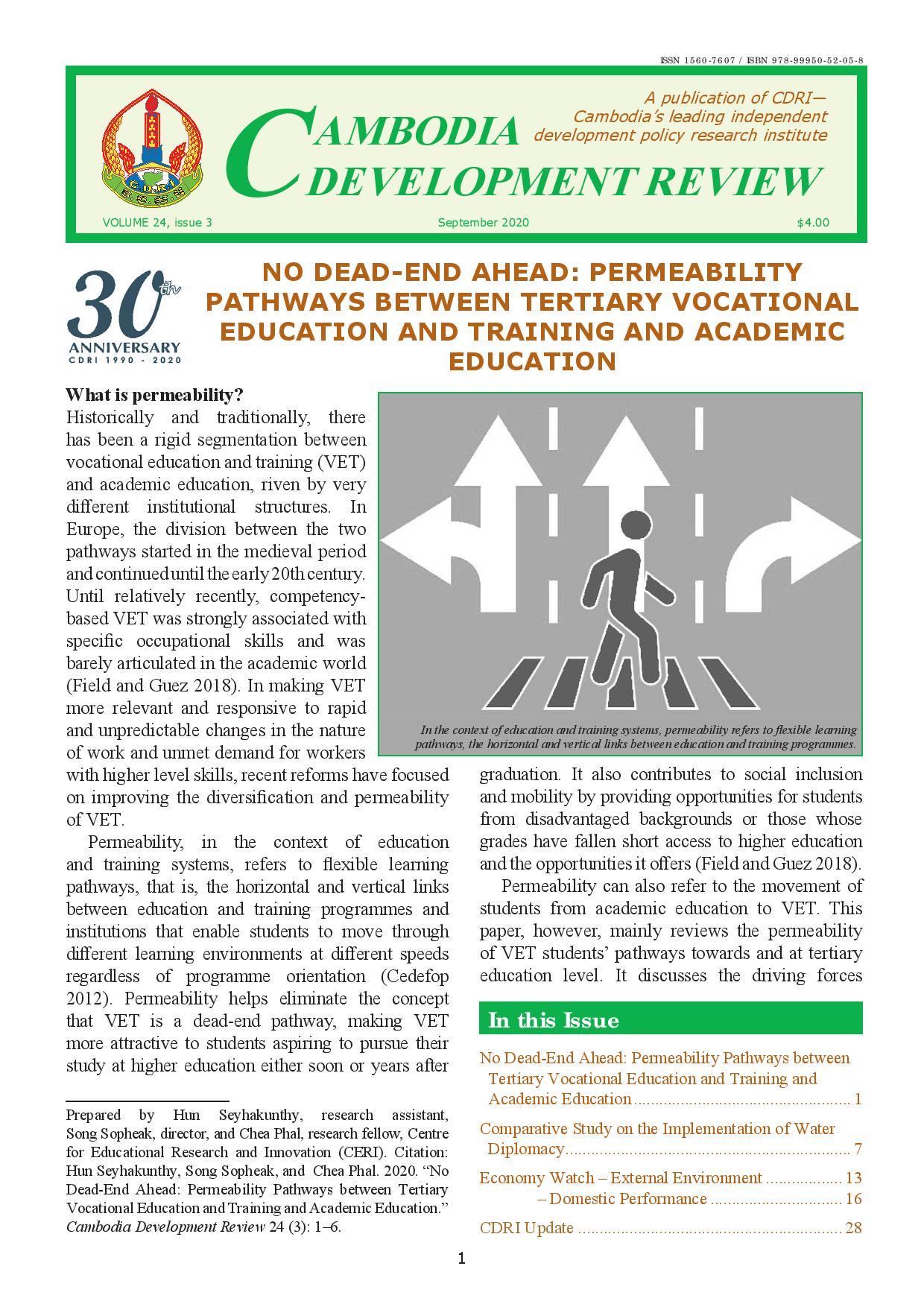
No Dead-End Ahead: Permeability Pathways Between Tertiary Vocational Education and Training and Academic Education
Permeability, in the context of education and training systems, refers to flexible learning pathways, that is, the horizontal and vertical links between education and training programmes and institutions that enable students to move through different learning environments at different speeds regardless of programme orientation. This study aims at discussing the driving forces behind endeavours to...
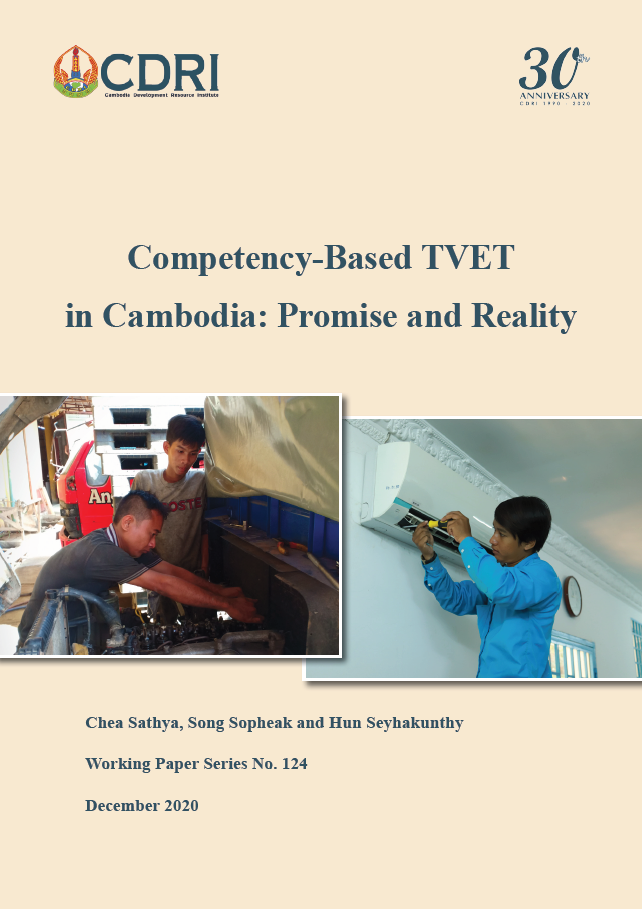
Competency-Based TVET in Cambodia: Promise and Reality
This study examines the development and implementation of competency-based training (CBT) in Cambodia’s technical and vocational education and training (TVET) sector. Introduced to align education with labour market needs, CBT emphasises student-centered, practice-oriented learning and flexible, modular curricula. Despite its potential, CBT implementation faces significant challenges. Through qual...
